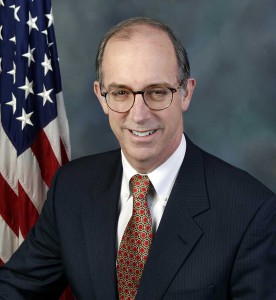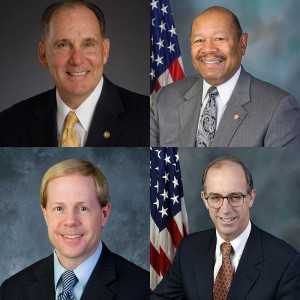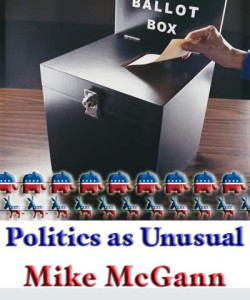Rep. Chris Ross (R-158), chairman of the House Liquor Control Committee, held an informational public meeting at the state Capitol to take a closer look at Pennsylvania’s wine and spirits wholesale and distribution systems.
“This meeting demonstrated why privatization is necessary,” said Ross, whose committee heard testimony from the Pennsylvania Liquor Control Board (PLCB), wine and spirits industry stakeholders and members of Pennsylvania’s Restaurant and Lodging Association (PR&LA).
“Some of the most compelling testimony came from the restaurant industry, which described the pitfalls of doing business through a government bureaucracy, and one that also regulates it,” said Ross. “Restaurants are small businesses that employ thousands of Pennsylvanians. The current liquor system interferes with these businesses and increases their costs. This means higher prices for consumers and fewer jobs for Pennsylvania citizens.”
Ray Hottenstein, a Lancaster County restaurateur who has been licensed by the PLCB for more than 40 years, said pricing is the No. 1 complaint by licensees.
“The five levels of markups not only make Pennsylvania uncompetitive with other states, but makes it difficult – and sometimes impossible – for licensees to resell the product at a fair and reasonable profit,” said Hottenstein. “It will always be a system that doesn’t allow competition in a true wholesale and retail market, and because of that, the solutions that are truly needed will only come from a privatized system.”
Steve Wildy, vice president and beverage director for the Vetri family of restaurants in Philadelphia and New Jersey, stated, “There’s no wholesale market for wine and spirits in PA as we know it.”
He said in New Jersey’s private system he can take advantage of wholesale pricing and volume discounts; free, next-day delivery and a 30-day window for payment. He said that these business practices, which are common in private systems, are not offered in Pennsylvania and add significantly to the cost of doing business. In fact, he said, restaurants pay even more than retail customers do on a number of items. For example, a bottle of Rex Goliath Zinfandel was sold in stores for $6.49 and sold to licensees at $8.99.
Wildy also said Pennsylvania licensees are subject to double taxation by the PLCB. He said he pays sales tax on his purchases through the PLCB, then he must remit sales tax again when he re-sells the product. In New Jersey, the sales tax is not assessed until items are sold at retail/
“The whole system is incredibly inefficient and costs the vendors, restaurant licensees, the PLCB, and in turn, the public, an innumerable amount of lost money,” Jason Malumed, president and founder of Chalkboard Wine + Spirits in Philadelphia, explained.
Scott Braunschweig, owner of the Artisan’s Cellar in West Chester, said the PLCB’s code approval process, which enables wine brokers like himself to introduce new products in Pennsylvania, is so slow that it has taken several months to get products approved.
“Distributors buy champagne and sparkling wines for the holidays and apply for our codes in August only to wait until February for approval. We need to sell these at New Year’s, not Easter,” said Braunschweig, “We’re all losing money and the PLCB and Pennsylvania are losing most.”
House Bill 466, which is the only liquor privatization bill to gain consensus in the Pennsylvania General Assembly and move to the governor’s desk, was vetoed last month by Gov. Tom Wolf. Ross remains optimistic that Pennsylvania licensees and consumers have not heard the last on this issue.
“Clearly this system doesn’t work for suppliers, licensees or consumers,” said Ross. “I will continue to push for agreement with the administration on fundamental changes to the system to benefit all Pennsylvanians.”








My butt restaraunts are worried about markup. They mark most bottles up 5x what the pay. Wine even more. What a crock